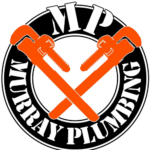Repiping services replace old, damaged, or unsafe pipes in your home. Pipes wear down over time and can cause problems. Homeowners should know when to call a plumber for repiping. This article explains signs, causes, and benefits of repiping. It also gives simple steps to follow.
1. Low Water Pressure
Low water pressure is a clear sign of pipe problems. Mineral buildup, corrosion, and leaks reduce water flow. If cleaning fixtures does not fix the issue, the problem may be inside the pipes. Repiping restores normal pressure.
2. Discolored Water
Water should be clear. Rusty or brown water indicates corrosion inside pipes. This problem is common in older homes with galvanized steel pipes. If the water stays discolored after running for several minutes, repiping is needed.
3. Frequent Leaks
A single leak may need a simple repair. Multiple leaks show that the entire plumbing system is weak. Leaks waste water, increase bills, and damage your home. Frequent leaks signal that repiping is the safest option.
4. Strange Noises in Pipes
Banging or rattling sounds can mean loose or damaged pipes. Water hammer or air in the pipes may cause noise. If these sounds continue, pipes could burst. Repiping prevents future breaks.
5. Age of Pipes
Pipes have a life span. Copper pipes last about 50 years. Galvanized steel lasts around 20 to 50 years. Polybutylene pipes, once common, are prone to failure. If your home is over 40 years old and still has its original pipes, consider repiping.
6. Visible Corrosion
Check exposed pipes for stains, rust, flaking, or discoloration. Corrosion weakens pipes and leads to leaks. If you see corrosion on the outside, the inside is likely worse. Repiping removes this risk.
7. Unpleasant Odors
Smelly water can indicate bacteria growth or buildup inside old pipes. This can affect drinking water and hygiene. New pipes solve this problem.
8. Water Temperature Fluctuations
Inconsistent water temperature shows possible pipe damage or blockages. This can happen if mineral deposits restrict water flow. Repiping allows water heaters and faucets to work properly.
9. Lead or Polybutylene Pipes
Lead pipes are unsafe. Polybutylene pipes are unreliable. If your home has either type, schedule repiping immediately. New pipes protect your family’s health.
Causes of Pipe Damage
Pipes fail for several reasons:
- Age
- Corrosion
- Hard water deposits
- High water pressure
- Poor installation
Identifying the cause helps homeowners make informed decisions.
Benefits of Repiping
Repiping has several advantages:
- Improved water pressure
- Clean, safe water
- Fewer leaks
- Lower water bills
- Peace of mind
What to Expect During Repiping
Repiping involves several steps:
- Inspection: The plumber checks pipes and gives advice.
- Planning: The plumber explains the scope of work and costs.
- Pipe removal: Old pipes are carefully removed.
- New pipe installation: New materials like PEX or copper are installed.
- Cleanup and testing: The plumber cleans the area and tests the system.
The process takes a few days, depending on the size of the home.
Choosing the Right Material
Homeowners can choose different materials:
- PEX: Flexible, affordable, and easy to install.
- Copper: Durable and long-lasting.
- CPVC: Resistant to corrosion and affordable.
Discuss options with a plumber to find the best solution.
Signs of Emergency Repiping
Sometimes, you cannot wait. Emergency repiping is needed if:
- Pipes burst
- Severe leaks occur
- Water damage is present
- Health risks from contaminated water arise
Call a licensed plumber immediately if these situations happen.
Maintaining New Pipes
Extend pipe life with simple maintenance:
- Check water pressure regularly.
- Use water softeners if you have hard water.
- Schedule yearly plumbing inspections.
- Fix small leaks quickly.
These actions help avoid future issues.
Cost of Repiping
Repiping costs vary. The price depends on:
- Size of the home
- Number of bathrooms
- Type of pipe material
- Accessibility of pipes
A plumber will provide an estimate after inspection.
Conclusion
Repiping is an important home investment. Old pipes cause water damage, high bills, and health risks. Signs like low water pressure, discoloration, and frequent leaks show that repiping is necessary. Hire a qualified plumber to inspect and replace damaged pipes. New pipes improve water quality, reduce stress, and protect your home. Stay alert to warning signs. Act early to avoid costly repairs and ensure safe water for your family.
